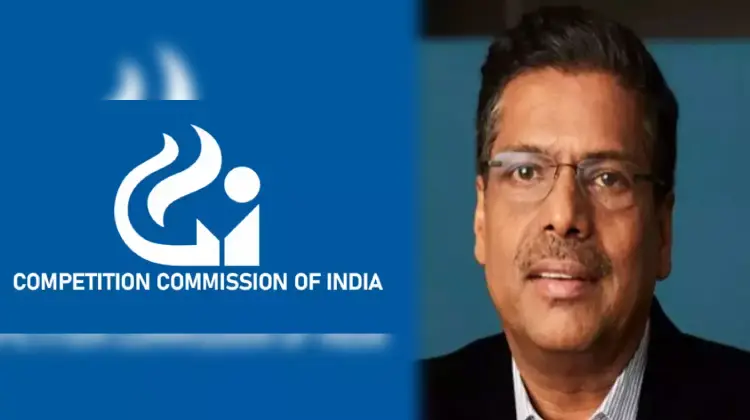The Competition Commission of India (CCI) has intensified its investigation into alleged cartelization and anti-competitive practices in India’s media and advertising industry by examining the email database of K Madhavan, the former President of the Indian Broadcasting and Digital Foundation (IBDF). This development is part of a broader probe that includes major advertising agencies, broadcasters, and industry bodies.
On March 18, 2025, CCI officials conducted sweeping raids across Delhi, Mumbai, and Gurugram, targeting prominent advertising agencies such as GroupM, Dentsu, Omnicom, Havas, Madison, IPG, and Publicis. Industry bodies like the Advertising Agencies Association of India (AAAI), the Indian Society of Advertisers (ISA), and IBDF were also under scrutiny.
During these raids, CCI cloned data from senior executives, including emails, call logs, financial transactions, and contracts involving advertisers, broadcasters, and media agencies. Specifically, the email database of K Madhavan—who previously served as Country Manager and President of Disney Star—and other IBDF officials, including Secretary General Siddharth Jain and Secretary Radhakrishnan Nair, was cloned for review.
The investigation centers on whether industry bodies colluded to fix commissions, manipulate pricing, or restrict fair competition. Authorities are analyzing internal emails, pricing agreements, meeting records, and other documents to uncover potential violations under Section 3(3) of the Competition Act, 2002. This section prohibits agreements within the same industry that directly or indirectly influence pricing or hinder competition.
Additionally, Finance Minister Nirmala Sitharaman recently informed the Lok Sabha about amendments to Section 3(3) through the Competition Amendment Act 2023. These changes introduced the “Hub-and-Spoke” mechanism, allowing CCI to implicate enterprises or individuals indirectly facilitating anti-competitive agreements.
The investigation has expanded beyond traditional media agencies to examine alleged malpractices in digital advertising. Data obtained from GroupM and Dentsu has sharpened the focus on Big Tech firms like Meta and Google. Officials suspect these companies may have influenced ad pricing and long-term media-buying agreements that favor select entities.
Dentsu reportedly filed a leniency application during the raids, acting as a whistleblower. This has opened new avenues for CCI to investigate undisclosed programmatic fees in digital advertising—a practice that advertisers claim lacks transparency.
Legal experts suggest that if CCI establishes evidence of anti-competitive practices among media agencies or Big Tech firms, it could lead to hefty fines and regulatory action. The investigation may also prompt a complete overhaul of media-buying strategies in India.
An industry insider revealed that IBDF’s Secretary General was extensively questioned about recent meetings between AAAI, ISA, and IBDF. These interactions are suspected to have played a role in coordinated pricing practices.
The CCI’s probe into alleged cartelization in India’s media landscape highlights growing regulatory scrutiny over anti-competitive practices. As investigations unfold, the industry watches closely for potential reforms that could enhance transparency and accountability in both traditional and digital advertising ecosystems.
Key Highlights:
- CCI examines emails of former IBDF President K Madhavan as part of an ongoing media cartel probe.
- Raids targeted major advertising agencies like GroupM and Dentsu alongside industry bodies AAAI, ISA, and IBDF.
- The investigation focuses on price-fixing allegations under Section 3(3) of the Competition Act.
- Digital advertising practices involving Big Tech firms like Meta and Google are under scrutiny.

